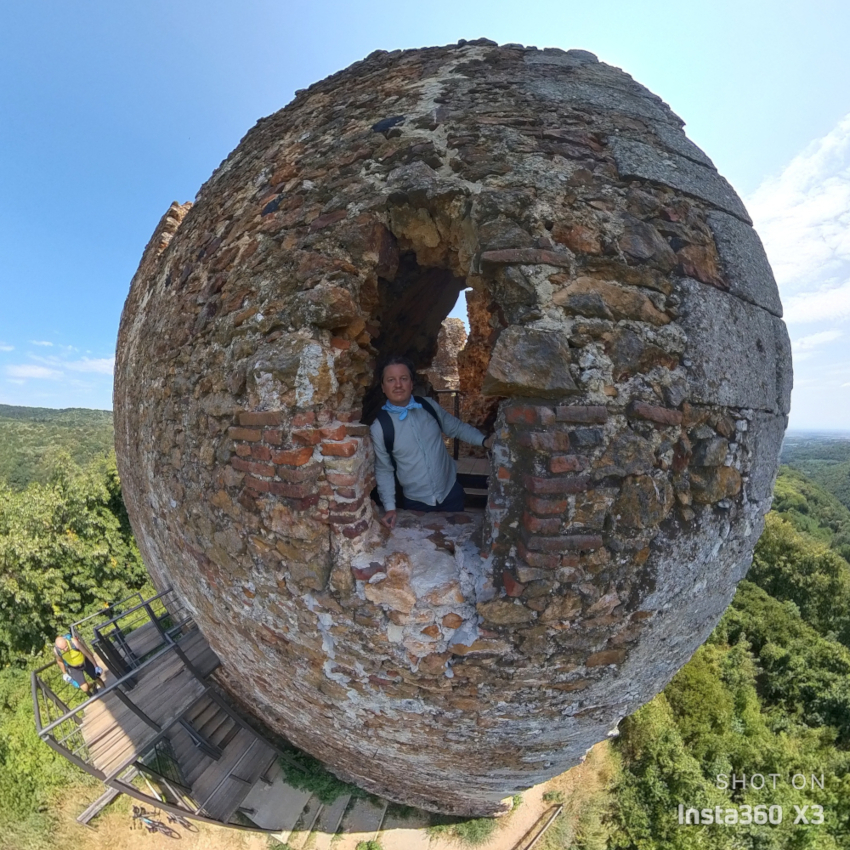Sem
I am a software engineer living and working in Belgrade, Serbia. My hobbies contain a lot of things including cycling, bikepacking, photography and quantum computations.
All the photos in my posts are made by myself (if not specified other) and are shared under CC-BY 4.0.
- 2 Posts
- 9 Comments

 9·25 days ago
9·25 days agoWhat do you think, how long should we wait until the overflow in the debts database makes the value negative?

 141·2 months ago
141·2 months agoFor me the problem is more in GPL violation: they distribute blobs under GPL3, user made a request of the source code by creating an issue, but they ignored that request. It is not only about “you have to fix it” versus “just fork it” imo.
Problem of Proton Drive is not only in the missing linux client. There is no support of WebDAV that makes integration with many open source tools (like note taking apps or photo management tools) almost impossible. Nextcloud is much better for me. Without a WebDAV (or one of other popular APIs) it looks like an attempt to create “walled garden” with vendor-lock on Proton, imo.

 1·3 months ago
1·3 months agotldr?

 0·3 months ago
0·3 months agoI heard that in USA Telegram is used mostly by conservatives, trans-haters and drug dealers. But in Russia where I was born and where I have been living until the war, Telegram was a single source of alternative news and the main tool for opposition to putin. I had a talk with an Iranian guy recently and he told me the same: in Iran Telegram is the only source of non-state-propaganda news.
I do not care that Durov is just a billionaire who makes money on the trend of privacy. But I remember how Telegram successfully fought against attempt of blocking in Russia in 2018 by providing regular updates and using different techniques to avoid blocking. An attack on Telegram for me is an attack on the latest opposition to putin, khamenei, lukashenko and others.

 0·3 months ago
0·3 months agoFor me one of the most flexible and mature way to knowledge base, tasks and notes is an org-mode.
I have two main workflows. The first one is task management. I have a lot of recurring tasks with tags, deadlines, schedules, etc. All of them are living in org-files in my Nextcloud. On Android I’m using orgzly-reviwed for sync via WebDAV, on my work I’m using organice (via WebDAV) as a “web-version” and also I’m editing my notes in emacs on my laptop (but actually any text editor could be used).
The second one is a knowledge base. I’m using org-roam locally (and with a localhost web server, built in into emacs) and orgnote for Android/Web + synchronization. My knowledge base is Zettelkasten-based.
Orgzly-reviewed: https://github.com/orgzly-revived/orgzly-android-revived
Organice: https://github.com/200ok-ch/organice
Orgnote: https://github.com/Artawower/orgnote
Orgnote provide a way to encrypt all notes by your own key/password. With orgzly I’m relying on Nextcloud encryption.
I mean if you try to use anything like python packages or even try to build python from sources it is painful. The only way to create developer environment is to use something like
nex developshells and you need to care about passing to LD_LIBRARY_PATH all that you need. And nothing downloaded as a binary is not working… For example, if I’m working on a Java-maven project that includes maven-protobuf then it is not working for you because protoc binary formanylinuxis made for a dynamic linkage… Overall developer experience is painful. And anything that is not in nixpkgs you cannot just download, build from source and use: you need to pack everything into packages with resolving all the dependencies by hands…
I had an yearly experience with Nix, but I’m thinking that it is overhead for just a home PC system. You may have more pain with static linkage compared to benefits of Nix reproducability and flexibility. Now is a year I’m on the Fedora Silverblue and this one is a really good balance between complexity and usability.




For me an AI topic is the hottest